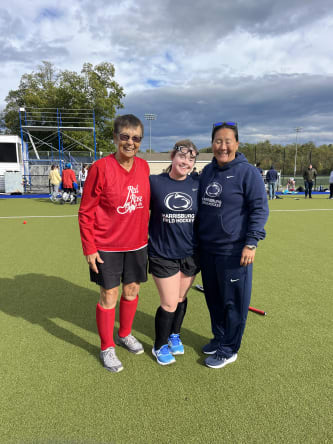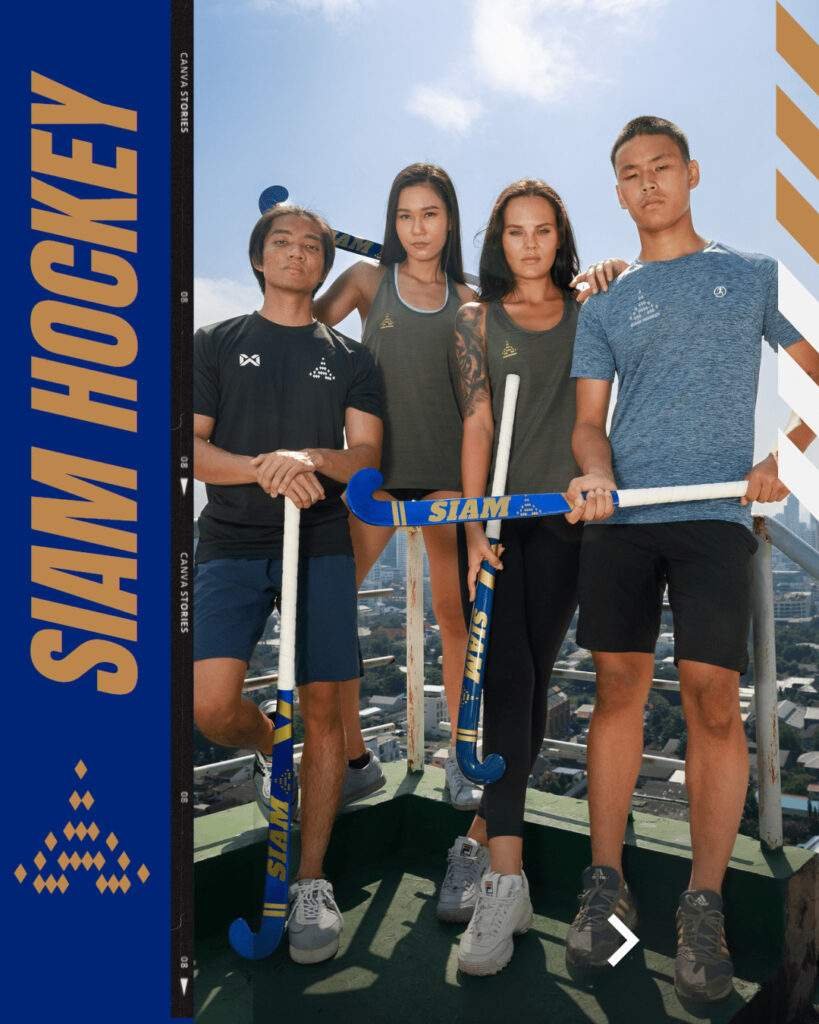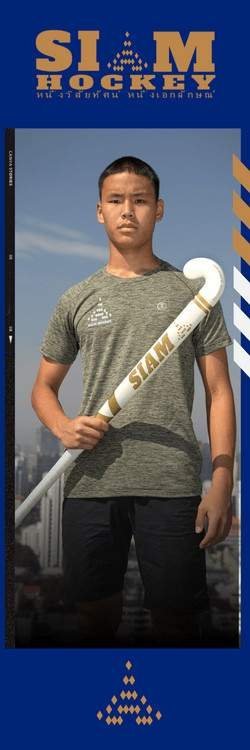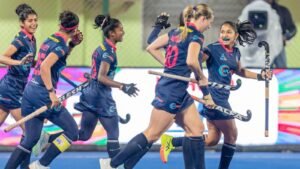Twenty-one-year-old Maggie Kutz made history this past fall when she became the first athlete with Down Syndrome to play collegiate field hockey. Like the rest of the population, Maggie isn’t defined by just one aspect of her life, but rather all the parts that make it up and the people she touches. Sometimes one thing can be a big part of us, and for Maggie – like so many others – one of those big defining factors is being a field hockey player.
USA Field Hockey reached out to Maggie, her family, and her coach AJ Misselhorn to learn more about who Maggie is, and her personal experience with field hockey.
ATHLETE SPOTLIGHT: MAGGIE
KUTZ
Maggie is currently in her second year at Penn State (PSU) Harrisburg as a Career Services major. This past fall, she joined the newly instated PSU Harrisburg field hockey team – a program that began as a club team this season before they achieved NCAA Division III status for this upcoming spring. Not only did Maggie participate in the historic moment of PSU Harrisburg’s first field hockey game, but she also became the first known athlete with Down Syndrome to play at the collegiate level. In the spring, she will continue to be a part of the team as they transition to Division III status.
To help introduce Maggie is her coach at PSU Harrisburg, AJ Misselhorn.

“I’d like to introduce the hockey world to Maggie Kutz! She has been a great addition to our team as she has many terrific qualities such as being an unselfish teammate and always being on time. She’s great with communication over text and she helps keep me on time. She scored on a stroke during our first game against Red Rose club and she has been practicing her corner insert. Maggie has a great hockey drive hit as she learned from the best, Lower Dauphin’s Coach Linda Kreiser and Coach Erin Hanshue Catalfano.”
“Having Maggie on our team has been amazing and she is a good reminder for all of us that hockey is about so much more than wins and losses and more about teamwork, dedication to something greater than yourself, and connecting with others whom we can learn from. I hope Maggie and her family, like so many other players I have coached, will end up being lifelong friends and together we can be a support system for each other and grow together as part of our hockey family.”
by NCAA








